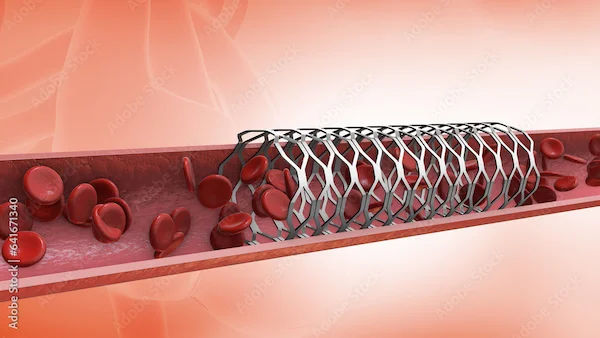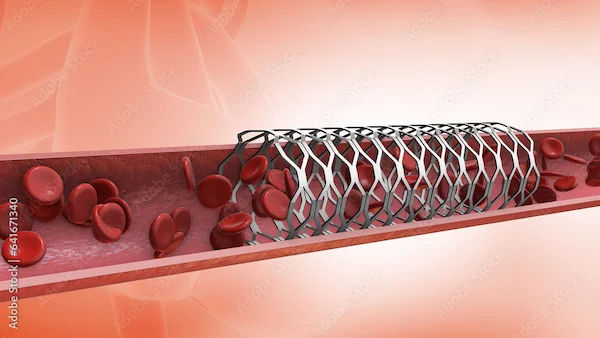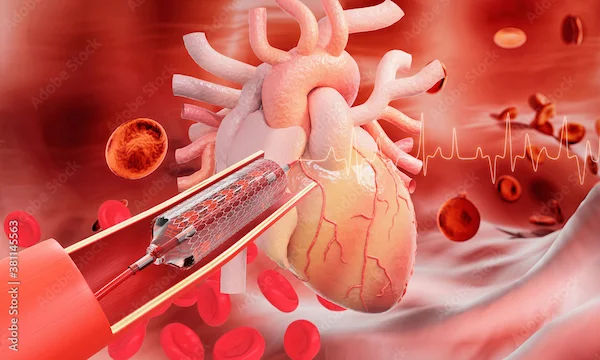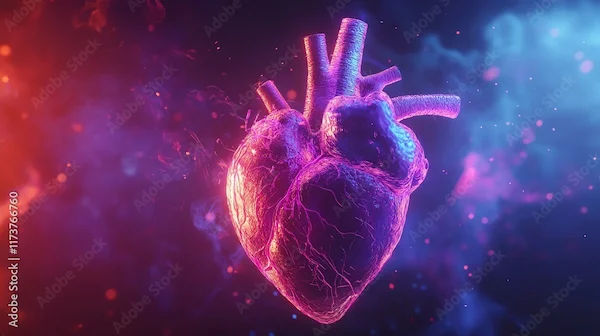Pain After Angioplasty
Understand the types of pain you may experience after angioplasty, how to manage it, and when to seek medical help for post-procedure discomfort.

Written by
Last updated on 7th Jul, 2025
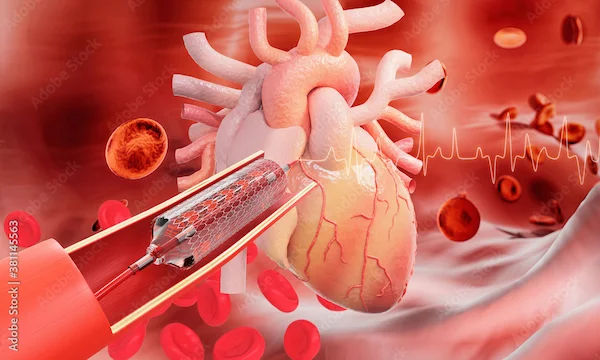
Introduction
Undergoing an angioplasty can be a life-saving procedure for those with blocked or narrowed arteries. While it helps improve blood flow to the heart, some patients experience pain or discomfort afterward. If you’ve had angioplasty and are feeling pain, it’s natural to be concerned. This article will help you understand why this happens, what’s normal, and when to seek medical attention.
What is Angioplasty?
Angioplasty is a minimally invasive procedure used to open clogged arteries, usually in the heart (coronary arteries). A thin tube (catheter) with a small balloon at the tip is inserted into the blocked artery. The balloon is inflated to widen the artery, and often a stent (a tiny mesh tube) is placed to keep it open.
While angioplasty is generally safe, some patients may experience pain or discomfort afterward.
Common Causes of Pain After Angioplasty
Experiencing some pain after angioplasty is common, and understanding the typical causes can help you distinguish between normal healing discomfort and signs that may need medical attention.
1. Soreness at the Catheter Insertion Site
The most common type of pain is at the site where the catheter was inserted, usually the wrist or groin.
You may feel tenderness, bruising, or a small lump.
This discomfort typically improves within a few days.
2. Chest Discomfort
Some patients experience mild chest pain or tightness after the procedure.
This could be due to artery stretching or minor irritation from the stent.
If the pain is severe, persistent, or feels like pressure, seek medical help immediately.
3. Muscle or Back Pain
Lying still during the procedure can cause muscle stiffness or back pain.
Gentle movement and light stretching can help ease this discomfort.
4. Stent-Related Pain
Some patients feel mild discomfort as the stent settles into place.
This usually subsides within a few days.
Consult Top Cardiologists
When Should You Be Concerned?
While mild pain is normal, certain symptoms require immediate medical attention:
Severe chest pain like a heavy pressure or squeezing sensation
Shortness of breath
Excessive bleeding or swelling at the insertion site
Fever or signs of infection like redness, warmth or pus
Cold or numb limb if the catheter was inserted in the groin or leg
If you experience any of these, contact your doctor or visit the nearest emergency room.
Tips to Manage Post-Angioplasty Pain
Here are some practical tips to help ease discomfort and support your healing process:
1. Rest and Gradual Movement
Avoid heavy lifting or strenuous activity for a few days.
Walk gently to improve circulation but don’t overexert yourself.
2. Keep the Insertion Site Clean and Dry
Follow your doctor’s instructions on wound care.
Avoid soaking in baths or swimming until fully healed.
3. Take Prescribed Medications
Pain relievers (like acetaminophen) may help with mild discomfort.
Never stop taking prescribed blood thinners unless advised by your doctor.
4. Stay Hydrated and Eat Heart-Healthy Foods
Drink plenty of water to help flush out contrast dye used during the procedure.
Focus on a balanced diet with fruits, vegetables, whole grains, and lean proteins.
5. Monitor Your Symptoms
Keep track of any new or worsening pain and report it to your doctor.
When to Follow Up with Your Doctor?
Schedule a follow-up appointment if:
Pain persists beyond a few days.
You notice unusual swelling, bruising, or bleeding.
You have concerns about recovery.
If you need expert advice, you can book a consultation with a cardiologist on Apollo 24|7 for personalised guidance.
Conclusion
Mild pain after angioplasty is common and usually temporary. However, knowing the difference between normal discomfort and warning signs is crucial. By following your doctor’s advice, taking prescribed medications, and making healthy lifestyle changes, you can recover smoothly and reduce the risk of future heart problems.
If you have any concerns about your recovery, don’t hesitate to reach out to a healthcare professional. Your heart health matters, and timely care can make all the difference.
Consult Top Cardiologists
Consult Top Cardiologists

Dr. Amit. A. Bharadiya
Cardiologist
12 Years • MBBS, MD General Medicine, DNB Cardiology, FSCAI
Maharashtra
Surabhi Hospital, Maharashtra, Maharashtra

Dr. S B Bhattacharyya
Cardiologist
22 Years • MBBS, MD(General Medicine),DM (Cardiology)
Kolkata
Gariaheart Clinic, Kolkata
Dr. Jayarajah Mariappan
Cardiologist
45 Years • MBBS, MD(GEN MEDICINE), DM(CARDIOLOGY)
Chennai
Sooriya Hospital, Chennai
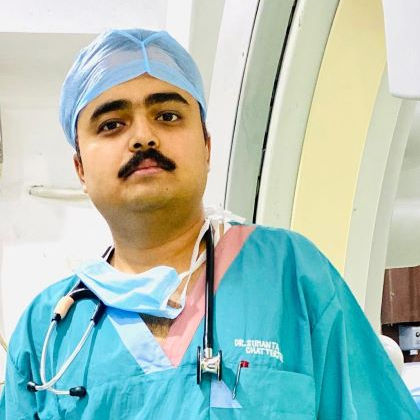
Dr. Sumanta Chatterjee
Cardiologist
12 Years • MBBS,MD General Medicine,DM Cardiology
Kolkata
HealthYou Speciality Clinic & Diagnostics., Kolkata
(25+ Patients)

Dr. Mangesh Danej
Cardiologist
8 Years • MBBS, MD (General Medicine), DNB (Cardiology)
Pune
Dr Danej clinic, Pune
(375+ Patients)
Consult Top Cardiologists

Dr. Amit. A. Bharadiya
Cardiologist
12 Years • MBBS, MD General Medicine, DNB Cardiology, FSCAI
Maharashtra
Surabhi Hospital, Maharashtra, Maharashtra

Dr. S B Bhattacharyya
Cardiologist
22 Years • MBBS, MD(General Medicine),DM (Cardiology)
Kolkata
Gariaheart Clinic, Kolkata
Dr. Jayarajah Mariappan
Cardiologist
45 Years • MBBS, MD(GEN MEDICINE), DM(CARDIOLOGY)
Chennai
Sooriya Hospital, Chennai

Dr. Sumanta Chatterjee
Cardiologist
12 Years • MBBS,MD General Medicine,DM Cardiology
Kolkata
HealthYou Speciality Clinic & Diagnostics., Kolkata
(25+ Patients)

Dr. Mangesh Danej
Cardiologist
8 Years • MBBS, MD (General Medicine), DNB (Cardiology)
Pune
Dr Danej clinic, Pune
(375+ Patients)
